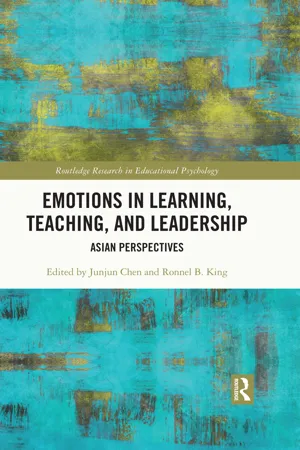Introduction
Failing is inevitable and essential to academic learning. What matters is how individuals respond to it. Previous research indicates that East Asian students in Confucian heritage cultures (CHCs) tend to persist after failure (Heine, Kitayama, Lehman, Takata, Ide, Leung, & Matsumoto, 2001; Zhang & Cross, 2011). Heine et al. (2001) found that North Americans who failed on a task persisted on a follow-up task less than those who succeeded, whereas Asians who failed persisted more than those who succeeded. These contrasting patterns highlighted the difference in the two groups’ motivation orientations: While Americans emphasize self-enhancement, Asians emphasize self-improvement. Zhang and Cross (2011) also found that Americans were more likely to report that their success enhanced their self-esteem, whereas Chinese viewed failures as more tolerable and as less damaging to their self-esteem. Moreover, Van Egmond, Kühnen, and Li (2013) found that Americans, with a more mind-oriented approach to learning, tended to view failure as a frustrating and disengaging factor that reduced learning motivation. In contrast, Asians, with a more virtue-oriented approach, were inclined to regard failure as a motivator for making subsequent effort to improve one’s inadequacies. However, this line of research primarily focused on individuals’ cognition and behavior toward academic failure, neglecting the impact of affect on subsequent persistent behavior. This study thus aims to bridge the gap in the literature to examine the impact of emotions on persistence, especially in the Confucian cultural context.
Academic failure inevitably triggers negative emotions. It is widely believed that negative feelings may lead to demotivation. However, Pekrun and colleagues (2007) suggested that some negative emotions, such as hopelessness, are demotivating, while other negative feelings, such as shame, motivate students to work harder after failure. Fwu and colleagues (2018) found that, for Taiwanese students, negative emotions such as indebtedness toward parents and to self could motivate students to work harder following academic failures. It seems that for Asian students, negative emotions may play a role in how they deal with academic failure and whether they persist after failure. This research thus focuses on how negative emotions motivate and/or demotivate Taiwanese students to engage in subsequent effort after failure.
Pekun’s theory of academic emotions
Pekrun’s (2006, 2016) control-value theory posits that control appraisals are one of the proximal determinants of students’ emotions after academic failure. Appraisals of control over academic outcomes involve causal attributions and expectancies. The former are the retrospective cognitions relating to the causes of a given effect (e.g., the causes of failure on a recent examination), and the latter, the prospective cognitions addressing relations between causes and their future effects (e.g., projected performance on an upcoming examination). Causal attributions of failure are expected to influence retrospective emotions such as shame, and causal expectancies are expected to influence prospective emotions such as hopelessness.
Retrospective and prospective emotions may have motivating or demotivating effects on individuals’ subsequent behaviors. Pekrun et al. (2007) further used valence (positive vs. negative or pleasant vs. unpleasant) and activation (activating vs. deactivating) to classify these emotions into four types: Positive activating (e.g., enjoyment, hope, pride), positive deactivating (e.g., relaxation, relief), negative activating (e.g., anger, anxiety, shame) and negative deactivating (e.g., boredom, hopelessness). These emotions influence students’ learning by affecting their attention, motivation to learn, use of learning strategies and self-regulation of learning (Pekrun, 2014). If students retrospectively attribute their failure to internal factors such as lack of ability and effort, negative activating emotions such as shame can be instigated, triggering subsequent effort-making. When students foresee their future performance as uncontrollable, negatively deactivating emotions such as hopelessness will be aroused, reducing their motivation to make further effort (Pekrun, 2006; Pekrun & Stephens, 2010).
Role obligation theory of self-cultivation in Confucian heritage cultures
Role obligation is deemed the essence of Confucian ethics. Unlike the individualist-oriented societies in the West, the relationally oriented CHCs tend to focus on the roles in family relationships and interpersonal networks (Hwang, 1999, 2012). Role ethics is considered the core of the relationalism in CHCs (Ames, 2011). Roles are ascribed for individuals to fill in order to maintain the...
